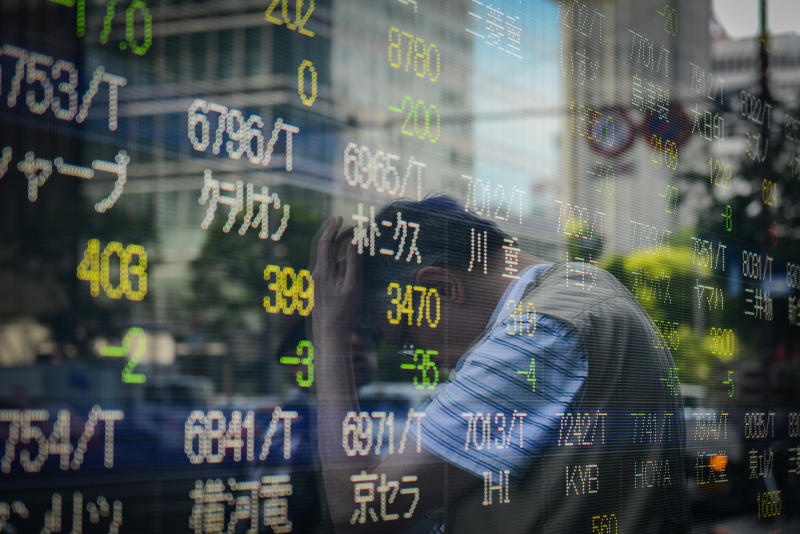Asia markets tumble after US stocks plunge into correction territory; China gets hit hard
Sign up now: Get ST's newsletters delivered to your inbox

Japan's Nikkei sagged 3 per cent, en route to a weekly loss of 8.6 per cent. MSCI's broadest index of Asia-Pacific shares outside Japan dropped 0.8 per cent.
PHOTO: BLOOMBERG
Follow topic:
TOKYO (BLOOMBERG) - The sell-off in global stocks that briefly looked to have ended mid-week has come back, tipping markets from the US to Asia into declines exceeding 10 per cent from their January highs. China, where retail investors dominate, got hit particularly hard on Friday.
Japan's Topix benchmark closed down about 2 per cent on Friday, having pared the worst of its losses. South Korea's index fell almost 2 per cent and Hong Kong's slid about 3 per cent. Onshore China gauges at one point exceeded 5 per cent losses on the day.
US futures climbed, even as the US government entered a partial shutdown, and Treasuries slipped. Meanwhile, the US dollar weakened against the euro and the pound, and strengthened against the yen. China set the yuan lower Friday after it weakened the most since 2015 on Thursday.
Equity traders have yet to get comfortable with a jump up in benchmark US 10-year yields to their highest in four years, and worries over the unwinding of bets against volatility in stocks continue to cast a shadow over markets. The negative superlatives have piled up quickly: the S&P 500 has erased its gain for the year, closed at a two-month low and is on track for its worst week since 2011. The Dow plunged more than 1,000 points for the second time in four days. The MSCI Asia Pacific Index is set for the worst week since at least February 2016.
Pressure on US stocks again came from the Treasury market, where another weak auction put gave bond bears ammunition, sending the 10-year yield as high as 2.88 per cent. Equity investors took the signal to mean interest rates will push higher, denting earnings and consumer-spending power. Over US$5 trillion has been wiped from global stock markets since Jan. 26, according to S&P Dow Jones Indices.
"There's some big-money players that have really leveraged to the low rates forever, and they have to unwind those trades," said Doug Cote, chief market strategist at Voya Investment Management. "They could be in full panic mode right now."
Elsewhere, oil headed toward its worst week in almost a year as the global risk-asset rout further rankled investors already concerned over growing US supply. The West Texas Intermediate crude fell 0.9 per cent to US$60.60 a barrel.
Gold rose 0.1 per cent to US$1,319.65 an ounce.

